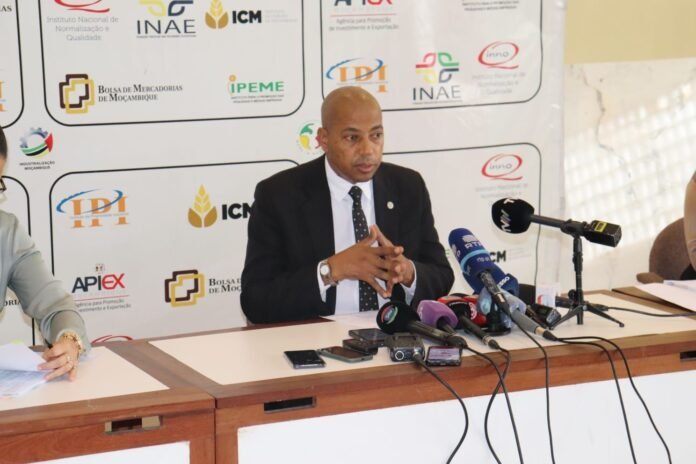The Ministry of Industry and Trade, through the National Institute for Standardization and Quality-IP (INNOQ, IP) and the National Inspectorate for Economic Activities (INAE, IP), in coordination with the Ministry of Health, held a press conference today, March 12, to announce the start of the inspection and banning of the import and marketing of products without a label in Portuguese.
The measure, now in force, is based on the obligation established by Decree 15/2006, of June 22, which covers the Hygiene and Health Requirements for the Production, Transport, Marketing, Inspection and Supervision of Foodstuffs.
On the occasion, the Director General of INNOQ, IP, Geraldo Albasini, emphasized that, in addition to the aforementioned decree, there is Ministerial Diploma 141/2013, of 23 September, which approves the Regulations on Pre-measured Products, establishing the general marketing conditions and the rules on nominal quantities applicable to pre-measured products.
Albasini also pointed out that the law mentions Technical Standard 15, which establishes the general requirements for the labeling of pre-packaged products.
“Article 20 of this document states that, without prejudice to other applicable provisions, each package must bear the name and address of the person responsible for placing the product on the market,” he said.
This requirement, according to the Director General of INNOQ, IP, is fundamental to guaranteeing the traceability of products and the responsibility of those involved in the marketing chain.
For INAE’s Inspector General, Rita Freitas, the measures now in force aim to ensure that consumers have access to clear and understandable information about the products they consume, promoting safety and public health.
The representative of the Ministry of Health, Azália Mucavele, also reinforced the relevance of the measures, highlighting the direct connection between product labeling in the official language and public health.
The authorities stressed that, in addition to imposing punitive measures in the event of non-compliance, there is an educational effort to make economic agents aware of the importance of complying with the established legal provisions.




